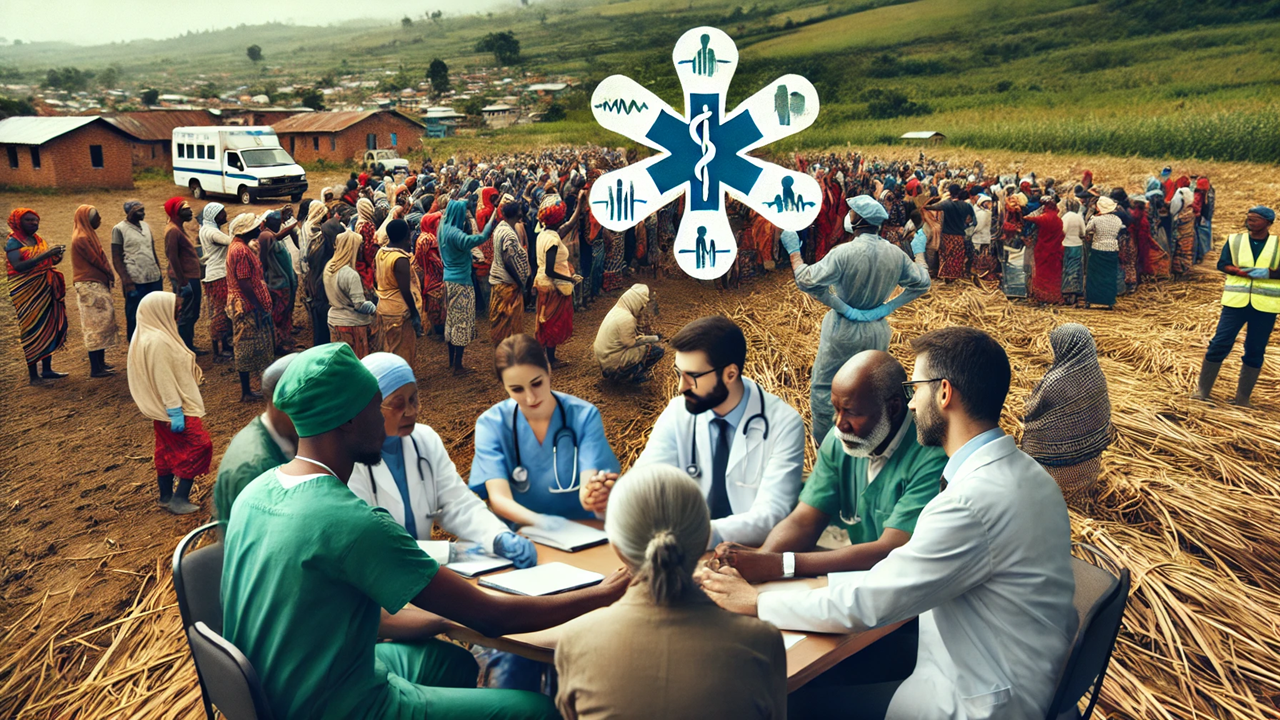Ahead of the 2024 UN Climate Change Conference (COP29) in Baku, the World Health Organization (WHO) is urging world leaders to position health at the core of climate change action. In its COP29 special report on climate and health, along with a technical guide on Healthy Nationally Determined Contributions (NDCs), WHO advocates for an integrated approach to climate and health policies, emphasizing the urgent need to shift away from fossil fuels and prioritize people-centred adaptation and resilience.
A Health Crisis at the Heart of the Climate Crisis
Dr. Tedros Adhanom Ghebreyesus, WHO Director-General, highlighted the intersection between climate change and health, stressing that the climate crisis is fundamentally a health crisis. “COP29 is a crucial opportunity for global leaders to integrate health considerations into strategies for adapting to and mitigating climate change,” Dr. Tedros said. “This is a moral, legal, and strategic imperative that can unlock transformative health benefits for a just and equitable future.”
WHO’s report, developed in collaboration with over 100 organizations and 300 experts, identifies key policies across three interconnected dimensions—people, place, and planet. It offers targeted actions aimed at protecting vulnerable populations, particularly the 3.6 billion people living in climate-sensitive regions. The report stresses the importance of aligning health and climate policy to catalyze meaningful progress in tackling climate change and improving public health outcomes.
Key Recommendations for COP29
The WHO's report calls for the following bold actions at COP29 to protect health and drive sustainable, climate-resilient development:
Health as the Core Measure of Climate Success: WHO advocates for human health and well-being to be the top metric for assessing climate progress, driving people-centred adaptation and resilience.
End Fossil Fuel Subsidies: It urges the global community to realign economic systems by eliminating fossil fuel subsidies and redirecting investments into clean, sustainable alternatives that both protect health and reduce pollution-related diseases.
Mobilize Climate-Health Financing: Strengthening health systems and creating climate-resilient healthcare infrastructures are critical, particularly in regions that face the most direct climate-related threats.
Invest in Proven Solutions: WHO highlights that five key interventions—from heat-health warning systems to clean household energy—could save nearly 2 million lives annually and provide a return of $4 for every dollar invested.
Sustainable Urban Development: Cities play a pivotal role in health outcomes, and investments in sustainable urban design, resilient housing, and improved sanitation can improve both climate resilience and public health.
Biodiversity Protection: The report emphasizes the need to restore and protect biodiversity, which provides significant health benefits, including cleaner air and water, and greater food security.
WHO's Guidance for Nationally Determined Contributions
Despite the inclusion of health as a priority in 91% of Nationally Determined Contributions (NDCs) under the Paris Agreement, few countries have specified actionable steps to leverage climate action for health benefits or protect public health from climate risks. To address this gap, WHO has released its technical guidance for integrating health into NDCs. This framework outlines specific actions for ministries of health, environment, and other sectors (such as transport and energy) to better incorporate health considerations into climate policies.
This guidance will help countries address climate-induced health impacts, strengthen health systems to improve climate resilience, and capitalize on co-benefits in sectors such as transportation and energy.
Support from Global Leaders
Global leaders have rallied behind WHO’s call to integrate health into climate action. UN Secretary-General António Guterres emphasized, “The climate crisis is also a health crisis. Human health and planetary health are intertwined. COP29 must drive progress toward cutting emissions, phasing out fossil fuels, and making peace with nature.”
Dr. Rajiv J. Shah, President of The Rockefeller Foundation, echoed the urgency: “We must account for lives saved, lost, and improved. The Rockefeller Foundation is working closely with WHO to ensure health considerations are central to climate action.”
Dr. Vanessa Kerry, WHO Director-General Special Envoy for Climate Change Health, warned that the accelerating climate-health crisis undermines economies and exacerbates inequities: “Health must be central in climate discussions to safeguard people, economies, and global security.”
WHO's Ongoing Climate and Health Efforts
WHO continues to take a leading role in advocating for climate-resilient health systems. Through the Alliance for Transformative Action on Climate and Health (ATACH), which involves 90 countries and 75 partners, WHO is working to integrate the climate-health nexus into national and global plans, ensuring that countries act with urgency and scale.
The WHO’s call for urgent action at COP29 highlights the crucial intersection of climate action and public health, pushing for integrated, people-centred policies that can protect both the planet and the health of millions of vulnerable people worldwide.











